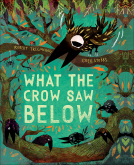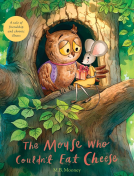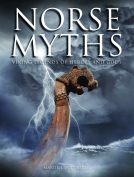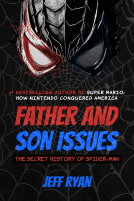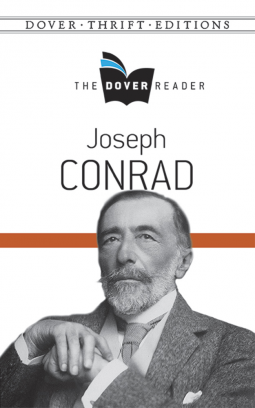
Joseph Conrad The Dover Reader
by Joseph Conrad
This title was previously available on NetGalley and is now archived.
Send NetGalley books directly to your Kindle or Kindle app
1
To read on a Kindle or Kindle app, please add kindle@netgalley.com as an approved email address to receive files in your Amazon account. Click here for step-by-step instructions.
2
Also find your Kindle email address within your Amazon account, and enter it here.
Pub Date Dec 17 2014 | Archive Date Mar 05 2015
Description
This anthology offers readers the essential Joseph Conrad, including his debut novel, Almayer's Folly. Other features include his political thriller, The Secret Agent, along with his most famous novel, Heart of Darkness, and a related account of an 1890 expedition, The Congo Diary. A selection of short stories includes "Youth: A Narrative," "An Anarchist," "An Outpost of Progress," and "The Secret Sharer."
Available Editions
| EDITION | Paperback |
| ISBN | 9780486791159 |
| PRICE | $6.00 (USD) |
Average rating from 7 members
Featured Reviews
A review copy of Joseph Conrad: The Dover Reader arrived before I finished Before the Party by W. Somerset Maugham. The Maugham short story describes the afternoon of a British family as they prepare to attend a garden party during which the chinese missions are to be discussed. Maugham contrasts some of the realities of colonialism with the very mannered preparations for the party, and so the mood was set to dip into the book which offers quite a bit of Conrad:
The Congo Diary
Almayer’s Folly
An Outpost of Progress
Heart of Darkness
Youth: A Narrative
An Anarchist: A Desperate Tale
The Secret Agent
The Secret Sharer
The Congo Diary is just a few pages and is basically just a sketchy outline of travel with a few details of the journey. That brought me to Almayer’s Folly for a reread.
Almayer’s Folly is Conrad’s first novel, so it’s fitting that it’s included in this anthology. It’s a flawed novel–certainly not perfect, but for Conrad fans, it’s well worth reading if only to fit the novel in the context of Conrad’s later, better work. In its conception, for this reader, the plot is perfect, but the execution is flawed. More of that later.
You can’t read books about colonialism without coming to the conclusion that it’s bad for everyone involved. Bernardo Atxaga’s Seven Houses in France, for example, set in the Belgian Congo, shows how the soldiers and officers in the jungle run amok with the natives. While the women are kidnapped, caged and raped, the soldiers have shed whatever humanity they possessed and become bestial. Colonialism says a lot about human nature, exploitation and what we become when removed from our society with its rules of behaviour. Almayer’s Folly, a tale of identity, displacement and greed, goes in a slightly different direction as the novel portrays a blend of cultures and the unfortunate outcome.
Almayer, born and raised in Java, is the son of Dutch parents. His father was a “subordinate official” and his mother “from the depths of her long easy-chair bewailed the lost glories of Amsterdam, where she had been brought up, and of her position as the daughter of a cigar dealer there.” As a young man with a good head for arithmetic, Almayer is employed in a trading warehouse in Macassar when he meets Tom Lingard, the so-called “King of the Sea,” a wealthy man whose bold adventures include tangles with pirates and the capture of a young girl found on a pirate vessel. Lingard adopted the girl, the pride of his existence, and shipped her off for a convent education in Java.
It’s rumoured that Lingard has discovered a river and that he uses this route in his business ventures, and this rumour, together with the fact that he adopted the child, have contributed to the myth and mystery that surround Lingard. Lingard employs Almayer as a captain’s clerk, but as it turns out, his real purpose in employing Almayer is to persuade him to marry his adopted daughter:
“And don’t you kick because you’re white!” he shouted, suddenly, not giving the surprised young man the time to say a word. “None of that with me! Nobody will see the colour of your wife’s skin. The dollars are too thick for that, I tell you! And mind you, they will be thicker yet before I die. There will be millions, Kaspar! Millions I say! And all for her–and for you, if you do what you are told.”
Startled by the unexpected proposal, Almayer hesitated, and remained silent for a minute. He was gifted with a strong and active imagination, and in that short space of time he saw, as in a flash of dazzling light, great piles of shining guilders, and realized all the possibilities of an opulent existence.
Almayer, thinking that “old Lingard would not live for ever,” agrees to marry to Malay girl.
in the far future gleamed like a fairy palace the big mansion in Amsterdam, that earthly paradise of his dreams, where, made king amongst men by old Lingard’s money, he would pass the evening of his days in inexpressible splendor. As to the other side of the picture–the companionship for life of a Malay girl, that legacy of a boatful of pirates–there was only within him a confused consciousness of shame that he a white man–Still, a convent education of four years!–and then she may mercifully die. He was always lucky, and money is powerful! Go through it. Why not? He had a vague idea of shutting her up somewhere, anywhere, out of his gorgeous future. Easy enough to dispose of a Malay woman, a slave, after all, to his Eastern mind, convent or no convent, ceremony or no ceremony.
This passage shows Almayer’s thought processes as he contemplates the wealth of Lingard weighed against a lifetime with Lingard’s adopted daughter. The dreams of wealth cloud his decision, so we don’t feel too sorry for Almayer when we fast forward and Almayer is very unhappily married to a wife who hates him.
The title Almayer’s Folly could refer to Almayer’s decision to base his life on an elusive future fortune, but it also refers quite literally to his dilapidated, unfinished house built on the Pantai River in expectation of the “big trade Almayer was going to develop,” while his father-in-law Lingard goes on a succession of expeditions, an “exploring craze,” to discover gold and diamonds in the interior.
Moving to the present, Almayer is a broken man whose hopes of fortune are almost entirely extinguished. He’s terrified of his wife but loves his daughter, Nina. Nina was brought up in a Dutch household in Singapore, but she returns home when her race poses a problem for her caretaker. Circumstances reawaken Almayer’s ambition, but now he focuses on Nina’s future.
Almayer is a fascinating, well-drawn character. Born from Dutch parents, he identifies with a country he’s never visited, and yet even in this displacement, he dreams of returning to a country he does not know. Amsterdam assumes mythical stature in his head, but at the same time, having a Malay wife and a daughter of that marriage presents social problems which Almayer never tackles. Almayer’s wife, shipped off to a convent for four years came away only with superstition, a hatred of whites , and a sense of her rights, but it’s in the portrayal of Nina that some jarring, patronizing statements occur:
Her young mind having been unskillfully permitted to glance at better things, and then thrown back again into the hopeless quagmire of barbarism, full of strong and uncontrolled passions, had lost the power to discriminate. It seemed to Nina that there was no change and no difference. Whether they traded in brick godowns or on the muddy river band; whether they made love under the shadows of the great trees or in the shadow of the cathedral on the Singapore promenade; whether they plotted for their own ends under the protection of laws and according to the rules of Christian conduct, or whether they sought gratification of their desires with the savage cunning and the unrestrained fierceness of natures as innocent of culture as their own immense and gloomy forests, Nina saw only the same manifestations of love and hate and of sordid greed chasing the uncertain dollar in all its manifestations and vanishing shapes. To her resolute nature, however after all these years, the savage and uncompromising sincerity of purpose shown by her Malay kinsmen seemed at last preferable to the sleek hypocrisy , to the polite disguise, to the virtuous pretences of such white people as she had had the misfortune to come in contact with.
Another problem with the novel is that there are many secondary characters who are mentioned but who never really take shape. Additionally the writing is occasionally sludgy and slow to plough through.
The novel offers a portrait of a displaced man with a skewed sense of identity who pins his life on the promise of an elusive fortune; he’s yet another man whose dreams and ambitions cause him to be swallowed up by the jungle. While Almayer’s life is a failure, his daughter, Nina, a product of two vastly different cultures, and rejected by white culture, claims her own destiny.
There’s a Chantal Ackerman film version of this. I tried it–couldn’t finish it.
Review copy
 John L, Reviewer
John L, Reviewer
With a selection of offerings that are already free and online in the public domain, you would hope for at least some editorialising and context to be included in a book such as this; sadly you look in vain. You do get a very well-pitched selection of works, both long and short, but have to draw your own links between his 'swan-song' debut travel journal and Heart of Darkness, and a repeated look at bomb-throwing anarchy on these pages. The writing is, of course, brilliant, as befits the master of many forms that was Conrad. This really would work as a fine introduction to his craft, were it about its business of presenting everything in a better, more educational form. As it is the works are great but the book is flawed.
 Juli R, Reviewer
Juli R, Reviewer
Joseph Conrad was the kind of author I was almost too prejudiced against to start reading. The "masses" have built up a lot of prejudice regarding the racist sentiments in his work although I have always found that those attitudes are severely judged within his work. So I was extremely happy to find a reader full of his work, especially one by Dover Publications who seem to specialize in bringing classics back. Thanks to Dover Publications and Netgalley for providing me with a copy of this book in exchange for a fair review.
It's difficult to write a comprehensive review about anthologies or readers such as this. As such the quality or merit of an author doesn't have to be discussed anymore since a dedicated anthology, a sort of 'greatest hits' collection so to say, proves that these are already accepted. However, as said above, Joseph Conrad is quite a conflicting author for many. His time in the Congo exposed him to the worst of humanity, a lot of which comes back in his writing. Too often he is cast aside as a racist author, but I'd have to disagree. Those opinions are definitely present in his writing, but they are always given to characters who are consequently judged by the book for those opinions. Just for the sake of exploring the consequences of Imperialism it is very worthwhile to read Conrad's work. Although nothing in this anthology is new or previously unseen material, it is good to have it all together in a single place.
The organization of this anthology is one of its main bonus points. The texts are arranged chronologically, moving from something almost akin to biographical material in 'The Congo Diary' during Conrad's time in Africa to his fictional works, spanning a time period from 1890 to 1909. Heart of Darkness, arguably Conrad's most famous novel, is at the very heart of the anthology and it becomes beautifully clear how many themes play in the novel which worked throughout his whole career. Some anthologies organise themselves around themes, which has its own advantages, but by showing an author's actual chronological journey reveals a lot about how their writing style developed etc. For example, reading 'Almayer's Folly', Conrad's first novel, before moving on to Heart of Darkness will show how much he has progressed.
Personally I was already a fan of Joseph Conrad before this anthology, but I enjoyed being able to see his progression as an author. Not all of his work was entirely to my taste but Dover Publications continues to bring out great anthologies. I'd recommend this to fans of Imperial literature and, naturally, fans of Joseph Conrad.
Readers who liked this book also liked:
Nigel Henbest; Simon Brew; Sarah Tomley; Ken Okona-Mensah; Tom Parfitt; Trevor Davies; Chas Newkey-Burden
Entertainment & Pop Culture, Humor & Satire, Nonfiction (Adult)
Sara T. Behrman
Children's Fiction, Outdoors & Nature, Parenting & Families
